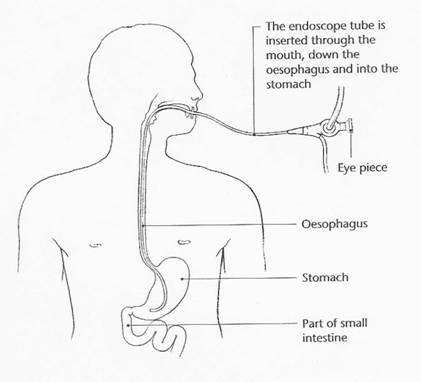

It is an upper gastrointestinal (GI) endoscopy or oesophago-gastro duodenoscopy (OGD). It is an examination of the lining of your gullet (oesophagus), stomach, and the first part of your intestine (duodenum). It is performed by passing a gastroscope (a flexible tube with a small camera at the end) through your mouth and into your stomach. The complete test takes approximately 5-10 minutes, but if treatments are carried out procedures do take longer.
Although there are alternatives your doctor has decided that this is the best test to find the cause of your symptoms. A barium meal x-ray examination is an alternative investigation. It is not as informative as a Gastroscopy and has the added disadvantage that tissue samples cannot be taken.
You have a choice as to whether the test is carried out using local anaesthetic applied as a spray to your throat or a sedative injection to make you feel drowsy and relaxed.
If you have throat spray:
If you have sedation:
If you had sedation for 24 hours after the test you should not:
These occur extremely infrequently, the doctor who has requested the test will have considered this. The risks must be compared to the benefit of having the procedure done.